Why is climbing Kilimanjaro now on every hiker’s bucket list? And why have those who reached its peak come back with an extremely positive attitude and tons of motivation?
Climbing Mount Kilimanjaro is not like jumping out of bed and deciding to get out of your comfort zone to do an out of the box activity. It’s a trek that requires a leap of faith, a firm decision to leave everything behind in order to embark on a life-changing journey.
Here’s what I learned:
1. Simplicity

After spending six days on the mountain where the only things I owned up there were hiking gear and clothing, a sleeping bag, poles, water containers, a head torch, energy bars, a camera and a most-of-the-time network-less phone, I realized how greedy and demanding we humans can be. We can survive without all of the fancy gadgets that we possess, so maybe it’s about time we stop purchasing unneeded stuff and give away at least half of them to charity.
2. Appreciating the little things in life
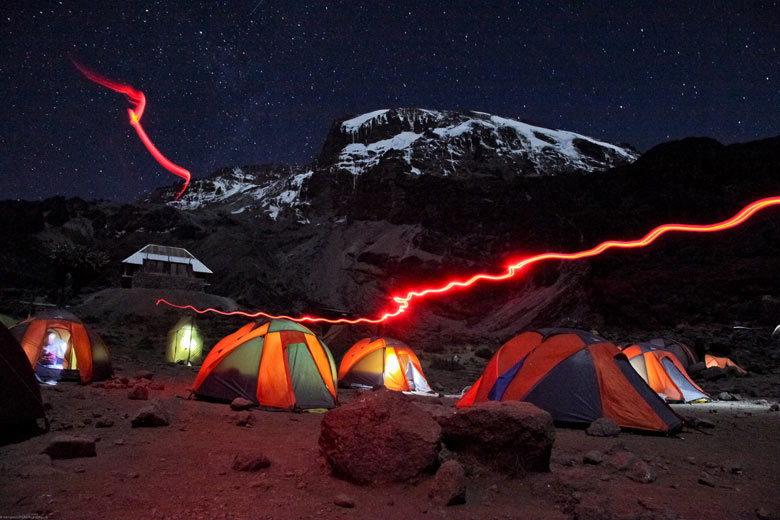
I started to value the little things in life that we usually take for granted: words of encouragement and support, a chitchat with my best friend, dinner with my family, owning a car even if it’s not the trendiest nor the fanciest, having the luxury to eat whenever I want and whatever I please, surfing the Internet, having a seated toilet, hot water and a shower – a list of never-ending blessings.
3. Packing SUPER light
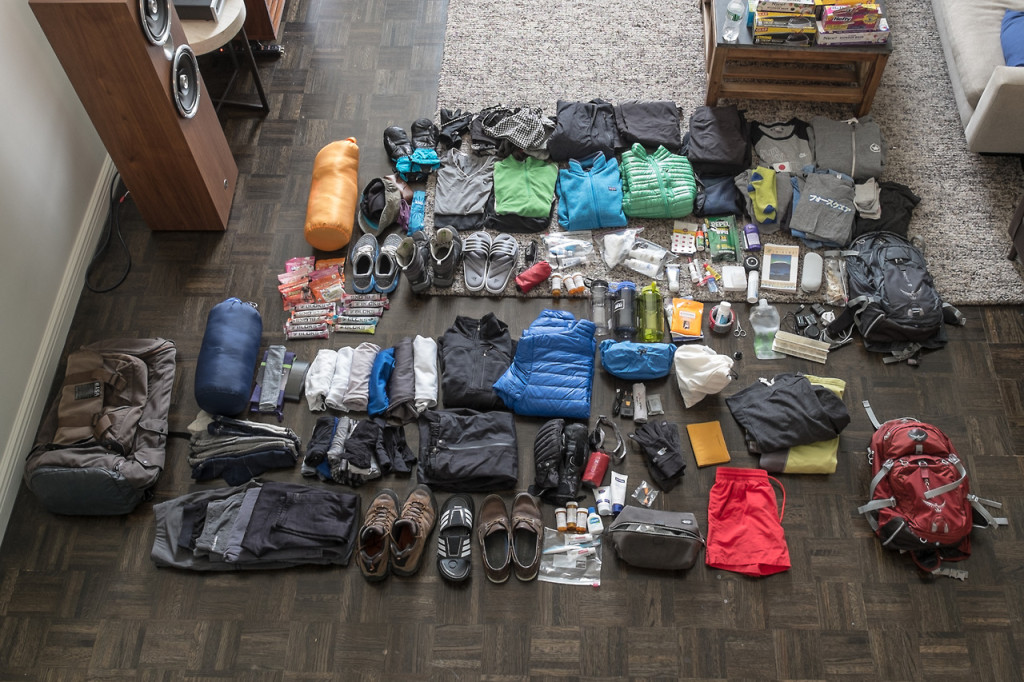
One of the main lessons I learned is how to pack super light. I could only carry stuff that helped to keep me going and complete the trek successfully. If you want to go on an expedition as I did then only take what you really need (you can shop backpacking and hiking gear here if you’re interested) because you don’t want to lug loads of pointless stuff up a mountain! I had to fit all of my clothing and hiking gear in a 60 L backpack or duffel bag weighing 20 kg maximum if not smaller – as the porter carries a 20 kg bag per person – no matter how long I was staying, without any complaining. I had to make sure that whatever I carried would be used, otherwise I left it at home.
4. El geish 2alak etsaraf (Figure it out!)
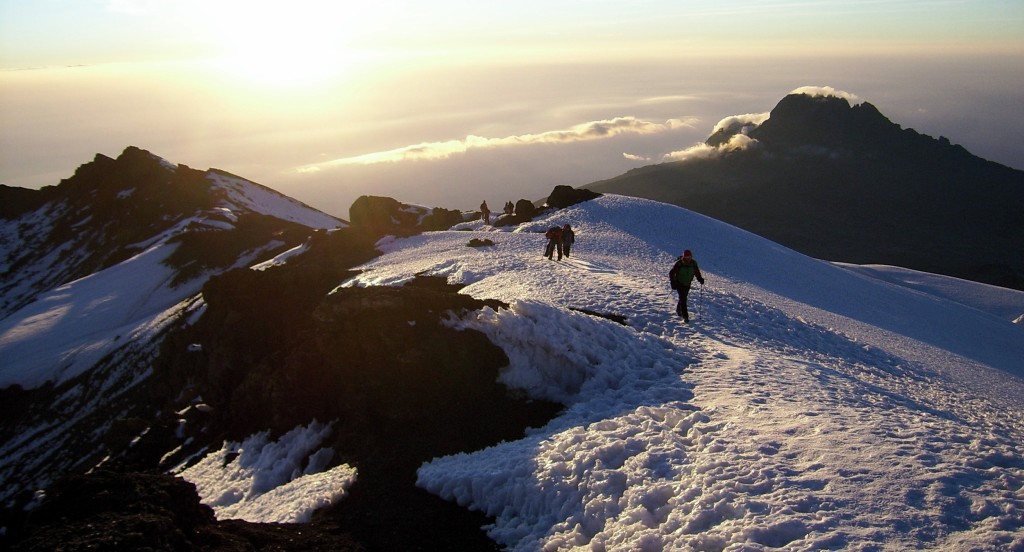
I peed in the wild, pooped in stinky holes, didn’t shower during the whole trek, learned to dress and undress inside my sleeping bag and wear very basic clothing pretty far from even matching, because what matters is comfort, convenience and practicality.
5. Self-awareness
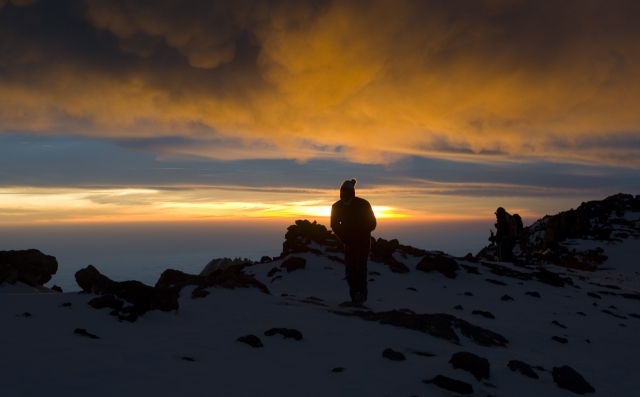
Leaving my comfort zone to climb Mt. Kilimanjaro was no easy task. Contrary to what people think, the challenge is more mental than physical. After days of trekking, coping with altitude sickness that deprived me of sleep – along with lots of other symptoms – having difficulties answering the call of nature in holes, not showering and having to pack and unpack every day, I learned how well I could cope with primitive life and how strong of a person I am.
6. Endurance and persistence (Et2adem et2adem w kefaya khalas tetnadem)
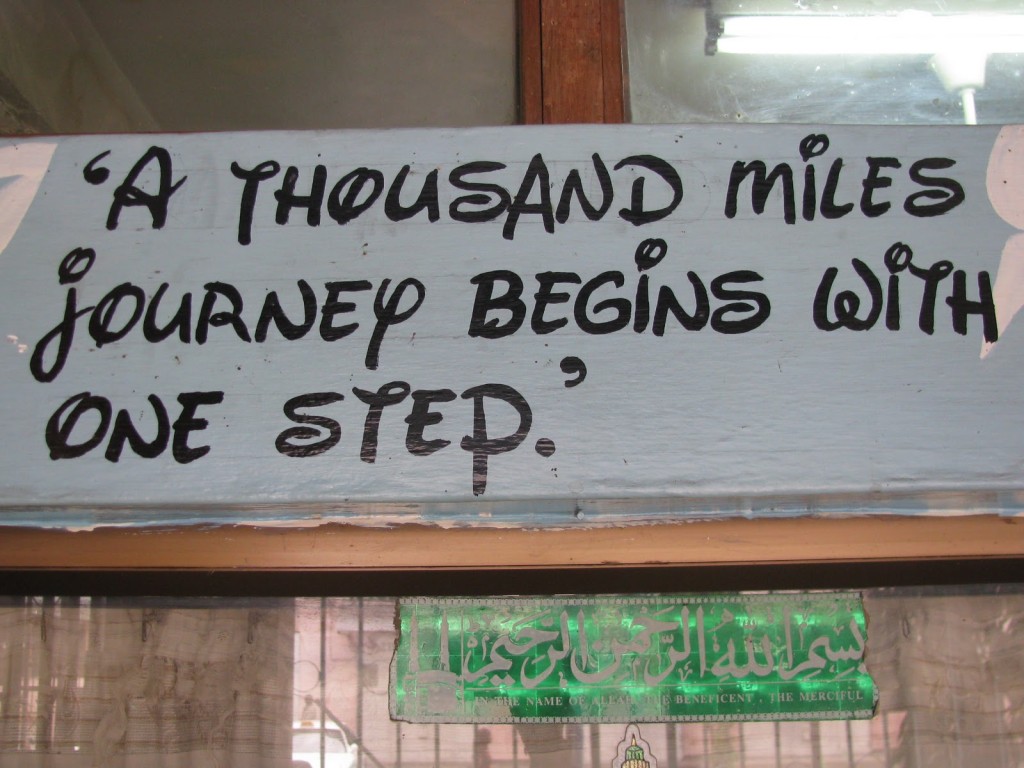
The peak day is the hardest and most challenging. This is when you’re overtaken by a mental struggle and that nagging voice that asks: Are you insane? Why are you doing this to yourself? You’re drained of energy and there’s still a long way to go, is it really worth it?
To overcome these thoughts, I told myself: There’s no backing down. The pain is just temporary, it won’t last forever. Will you be able to cope with failure? You can’t be serious, after all of this effort you will not go back without a trophy – a photo at Uhuru peak – and a Certificate of Accomplishment that you proudly made it to the top.
7. Acknowledging God’s greatness
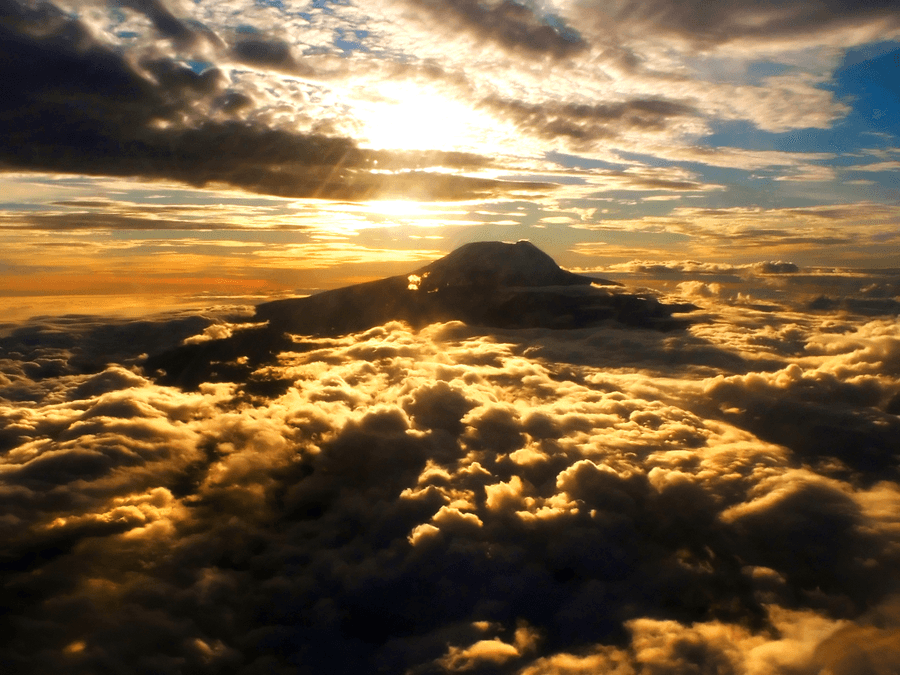
Seeing beauty at its best, the magnitude of the mountain and how nature differs from one area to another – jungle to moorlands, alpine desert to glaciers, witnessing the four seasons in one day and being above the clouds – I spent a lot of time thinking about how vulnerable we humans are compared to God’s greatness.
8. Self-confidence and self-esteem
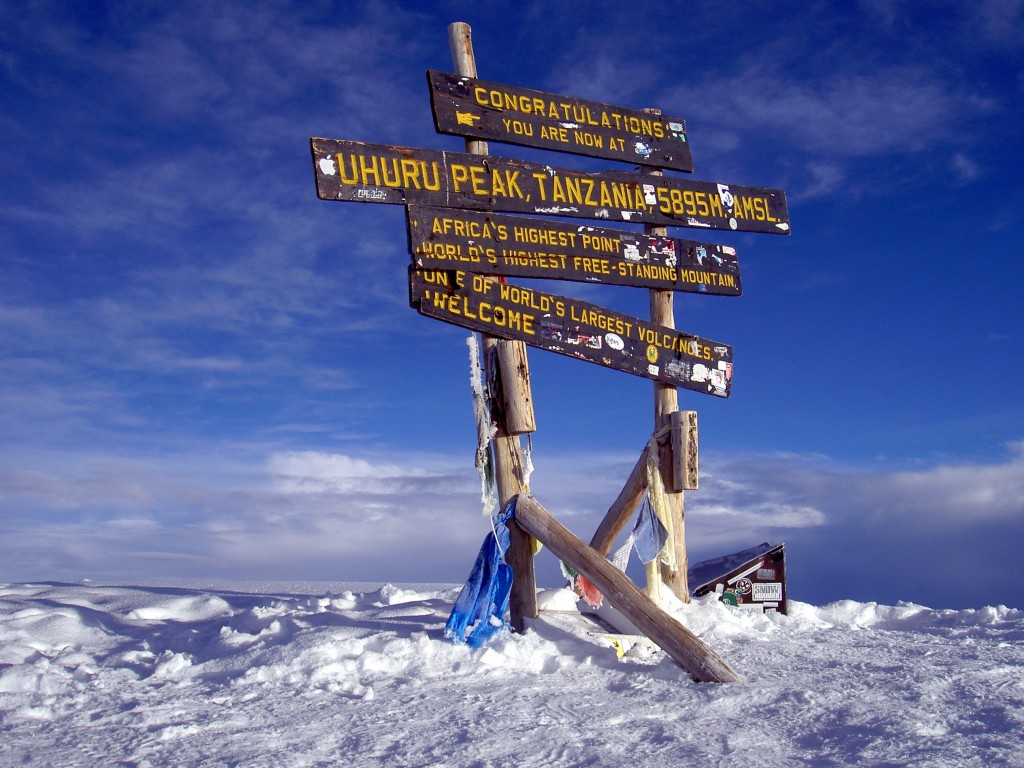
Once I made it to the peak, I felt that literally, “Impossible is NOTHING”. I felt strong, decisive, content and accomplished. I realized that obstacles are nonexistent and nothing can stop me from achieving anything in life, no matter how difficult.
9. Teamwork and a positive spirit (Ya ne3ish 3isha fol, ya nemout e7na el kol)
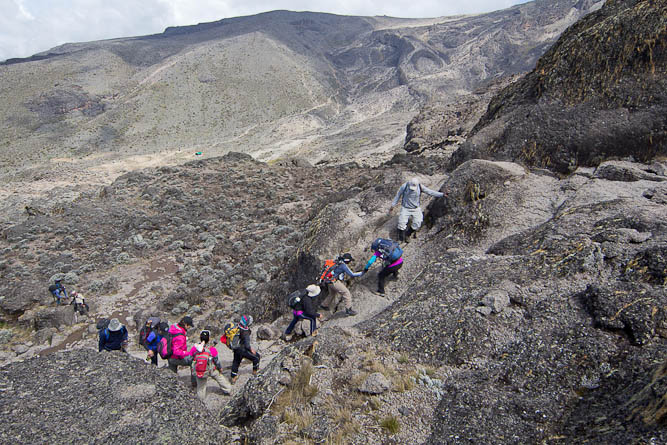
We were all one team with one goal of reaching Africa’s highest point. Accordingly, everybody – including the guides – helped each other, shared their feelings, motivated one another to push herself/himself harder. Believe me, without teamwork and a positive spirit, it’s easy to give up.
10. Commitment and discipline
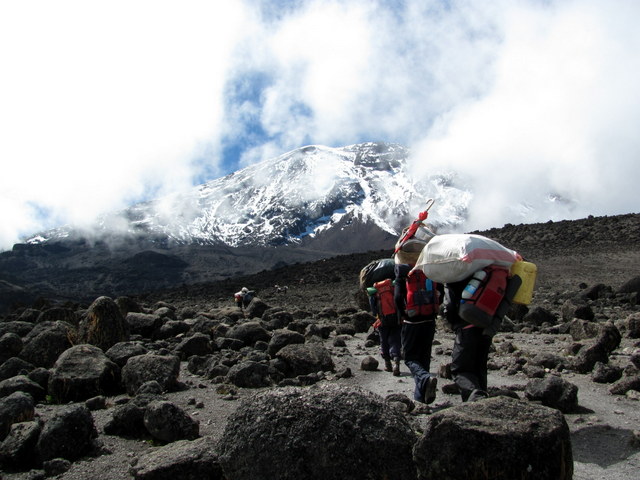
During the climb, my life was all about trekking, drinking lots of water, eating and sleeping, with some mingling in the group or with other trekkers that we met along the way. It was like being in a boot camp.
11. Looking at life differently
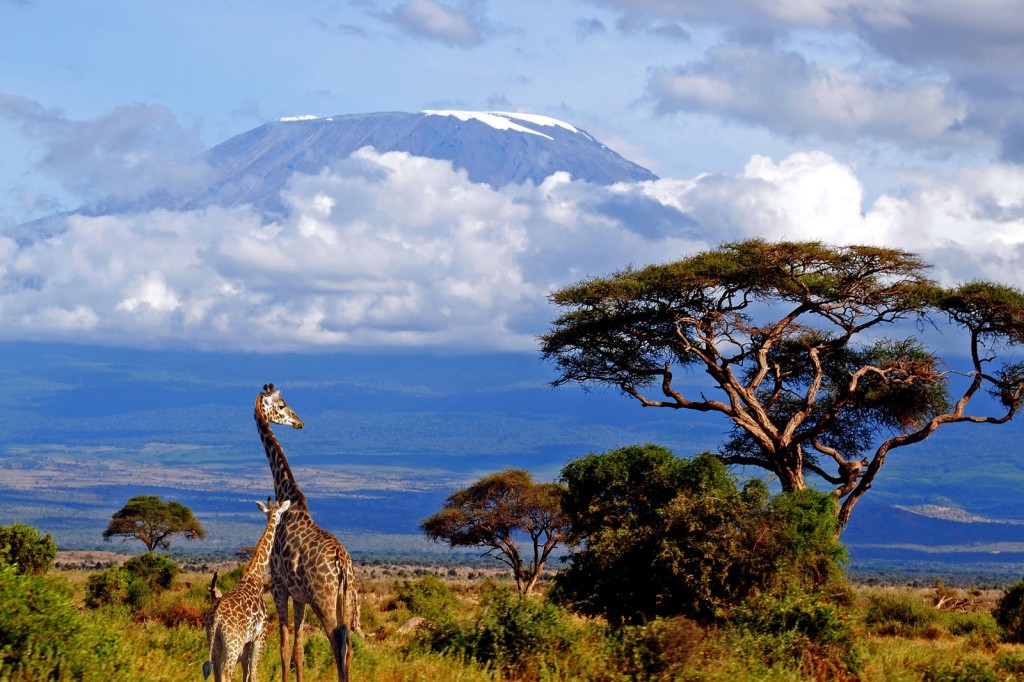
Being surrounded by beauty and challenging myself every day gave me time to completely disconnect from my daily life, focus on my goal, clear my mind, look at my life from a totally different perspective and, above all, think more positively.
WE SAID THIS: Don’t miss “9 Reasons to Travel as Much as You Can When Single“.


